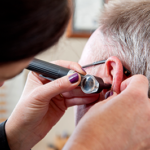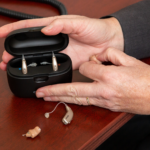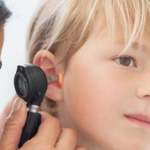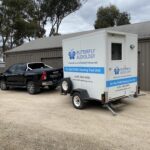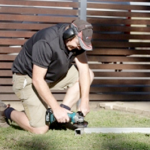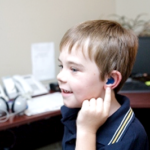Our Hearing Assessment for Children Process
We perform hearing assessments for children aged 4 years and over. Our experienced audiologists ensure that every child feels relaxed and comfortable, allowing accurate results to be obtained.
Children’s hearing assessments involve firstly responding to a series of beeps and then repeating words so we can assess if their hearing is adequate for normal speech, language and educational development. The test is modified to cater to children of different ages and concentration abilities. We also check for middle ear fluid and congestion which is common in younger children and can significantly affect speech and learning.
For younger children, we perform ‘Play Audiometry’ which requires children to respond to sounds in the form of a game. For older children, the method of hearing assessment used is similar to that which is used for adults. We often see children who are referred by their doctor, speech pathologist or school nurse.
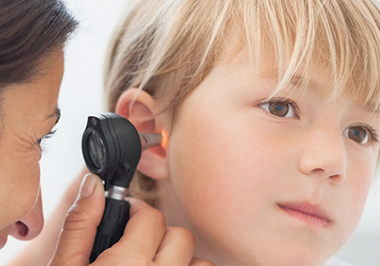
Below is a social script you can show your child if they are feeling a little anxious about what will happen when they attend the clinic.
View our Social Script for young children attending our clinic
At the conclusion of the assessment, results are explained to parents/carers and in consultation with them, results are reported back to the doctor and any other relevant health professionals (e.g. speech pathologist). Children requiring hearing aids are referred to Hearing Australia which is the government owned agency funded to manage children with permanent hearing loss. The assessment takes approximately 45 minutes.
While we are happy to see children without a referral, if you do have doctor’s referral it will allow you to claim a portion of the consultation fee back through Medicare.
- Early identification and intervention can help to improve your child's communication skills and overall development.
- A hearing assessment can help to identify any hearing loss your child may have, so that they can get the help they need early on.
- A hearing assessment can also help to rule out other conditions that may be affecting your child's hearing, such as ear infections or fluid in the ear.
- The hearing assessment will be conducted by a qualified audiologist.
- The audiologist will talk to you about your child's hearing history and any concerns you may have.
- The audiologist will then perform a series of tests to assess your child's hearing. These tests may include:
- Play audiometry: This is a game-like test that is used to assess the hearing of children between the ages of 4 and 6.
- Pure tone audiometry: This test uses headphones to deliver sounds of different frequencies and volumes to the ear. The child is asked to raise their hand or press a button when they hear the sound.
- Tympanometry: This test measures the movement of the eardrum and the middle ear.
- The audiologist will explain the results of the hearing assessment to you and discuss your child's options for treatment.
- There are many treatment options available for children with hearing loss, including hearing aids, cochlear implants, and speech therapy.
- The best treatment option for your child will depend on the severity of their hearing loss and their individual needs.
- Your audiologist will work with you to develop a treatment plan that is right for your child.
- Talk to your child about what to expect during the hearing assessment.
- Make sure your child is comfortable with the audiologist.
- Bring a favorite toy or book to help your child relax during the assessment.
- Be patient and understanding. The hearing assessment may be a new and unfamiliar experience for your child.

